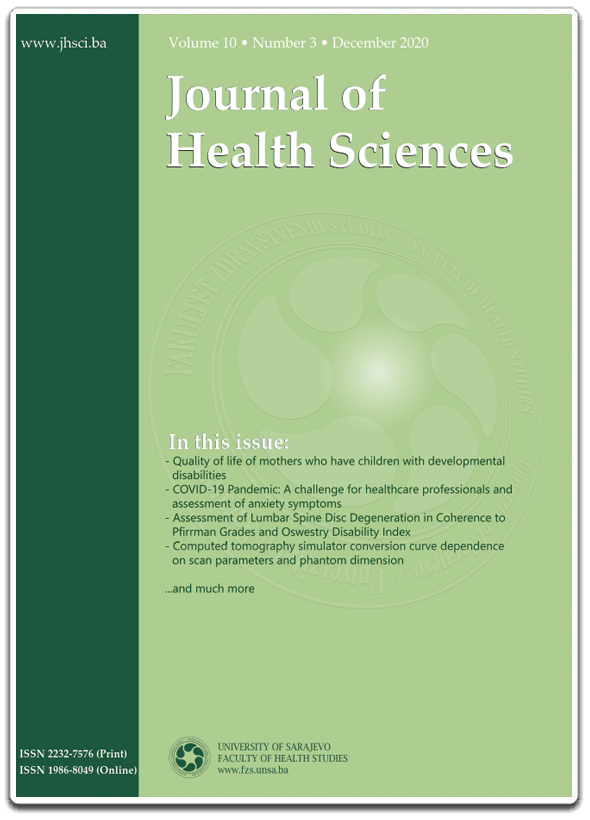Modern treatment of patent ductus arteriosus – single center experience
DOI:
https://doi.org/10.17532/jhsci.2014.212Keywords:
PDA, Transcatheter closure, occluder device, coil, ADO,Abstract
Introduction: Transcatheter closure is a treatment choice for the most children with patent ductus arteriosus (PDA). The closure of the ductus is indicated in any child or adolescent with developed symptoms of significant L-R shunt. The aim of this article is to present our results in 5 years treatment of patients with PDA and their outcome.
Methods: From 2009 to 2014, 30 patients underwent a transcatheter closure of PDA at Centre for Heart and Pediatric clinic of Clinical University Centre of Sarajevo. Aortic angiogram was performed to evaluate the size, position, and shape of the duct for selection of appropriate occluder device type and size. All procedures were performed by local team of cardiologists from the Department of Cardiology, Pediatric clinic, with invasive cardiologists team from Sweden and Austria. Echocardiography was repeated at intervals of 24 hours, then 1month, 3 months, and 1 year after the procedure to assess the outcome.
Results: Thirty patients underwent transcatheter closure of PDA during the study period. PDA of ≤ 2.0 mm was present in 8 patients and they underwent PDA closure with coils, while 22 patients had PDA diameter ≥ 2 mm, and they were treated by Amplatzer duct occluder (ADO). Only in 2 (6.2%) patients complications have been observed. The length of hospital stay after the treatment was two to three days.
Conclusion: Transcatheter closure of PDA is a modern, safe and efficient method that ensures a faster recovery of the patients, shortens the length of hospitalization.










